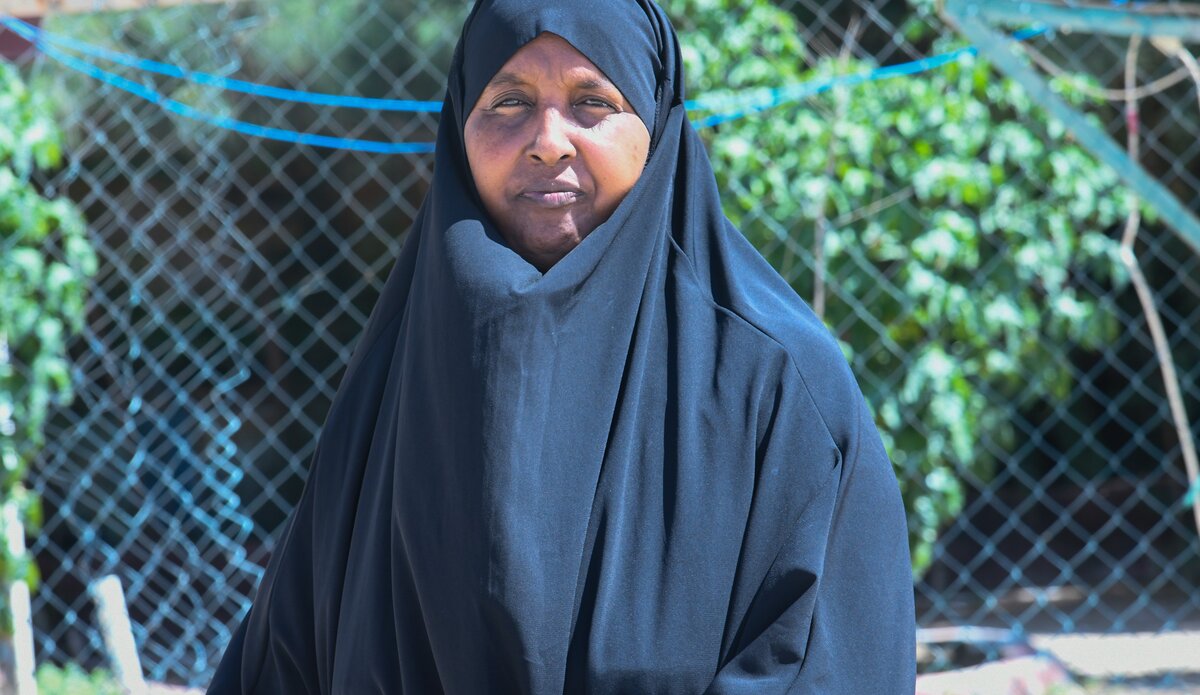Fatuma Ali Aden: Working and volunteering for women and girls in Jubaland
Kismayo – As Somalia rebuilds after decades of conflict and strife, many Somalis have stepped up to help their countrymen and women across various areas.
One of these people is Fatuma Ali Aden.
The 42-year-old Ms. Aden is a prominent activist for education in her hometown of Kismayo, the capital of Somalia’s southernmost Federal Member State (FMS) of Jubaland, on the border with Kenya.
She currently works as the Deputy Chairperson of Jubaland Non-State Actors (JUNSA), a local non-governmental organization which is the FMS’s largest civil society umbrella group, with a focus on advocating for the rights of the FMS’ residents and promoting fair representation of marginalized communities, women and youth in public spheres.
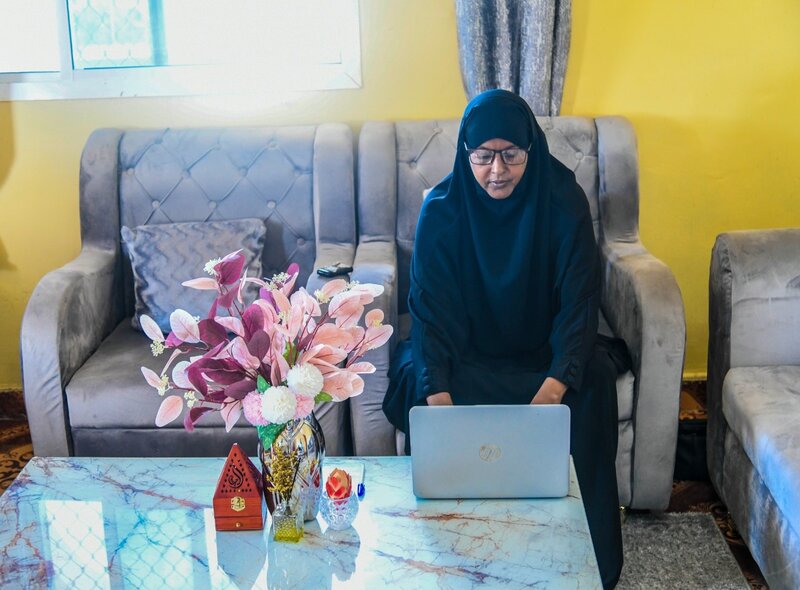
But this is just one of several roles Ms. Aden plays locally. It also follows many decades of employment and volunteerism on issues tied to improving the lives and prospects of Kismayo’s women and girls.
“When I walk the streets of Kismayo, and I meet some of these women and girls who greet me as a teacher – it fills me with motivation and peace of mind," Ms. Aden says.
Move to Dadaab
Ms. Aden was born in Kismayo in 1982. She attended Luuq Primary School and then continued at Mandera Girls Secondary School, near the Kenya-Somalia border. From 1999 to 2000, she pursued general health studies at Kismayo College.
In 2001, she moved to the Dadaab refugee complex in Kenya when her family resettled there, at its Hagar Dheere settlement, after fleeing the violence that was gripping Somalia. At educational facilities there, she earned an accounting diploma in 2007.
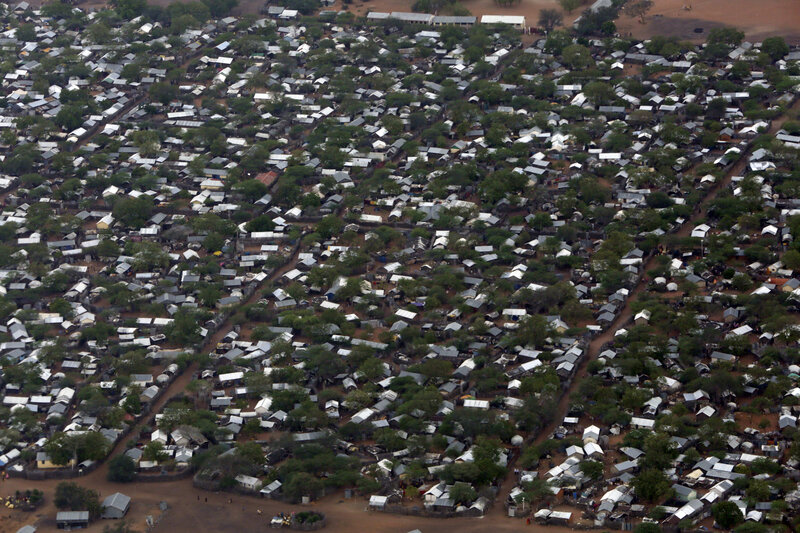
And it was while at Hagar Dheere that she first became interested in helping others. In 2003, at the age of 21, she volunteered to be a teacher for adults. There, surrounded by eager students, she discovered a new-found passion for helping and educating people.
Despite some obstacles – such as limited financial resources and the inherent challenges of life and work in a refugee camp – she dedicated herself to teaching, imparting knowledge and fostering a love of learning among her students.
Return home
In 2006, she returned to her hometown in Somalia. She felt that the security situation was acceptable, and she was eager to contribute to the development of her community and her country.
“When I arrived in Kismayo, I noticed many children were not attending school, and enrollment rates were alarmingly low,” she recalls, adding that this awakened an urge inside her.
Determined to make a difference and having enjoyed teaching in Dadaab, she immersed herself in education activism and joined the Kisima Peace Development Organisation, a community-based non-governmental organization (NGO) dedicated to promoting and advocating for education for vulnerable children, including those living on the streets in Kismayo.
“For the next five years, I served as the organisation’s human rights focal person, addressing the plight of vulnerable children and marginalised communities,” she says. “I was tasked with developing rural literacy programmes, aimed at eradicating illiteracy and ignorance that hindered many from realising their full potential. I operated mobile classrooms in areas surrounding Kismayo, providing education to countless young people who otherwise would have been denied the opportunity to learn.”
Next level
In 2012, Ms. Aden transitioned back to Jubaland’s education sector. She took on the role of administrator of the Ganane Primary and Secondary School in Kismayo, where she led the school’s operation.
Some five years later, in 2017, it was back to civil society. She joined a local NGO, Action for Social and Economic Progress (ASEP), and worked on a programme aimed at saving youth at risk of engaging with unlawful groups and criminal activities due to a lack of opportunities.
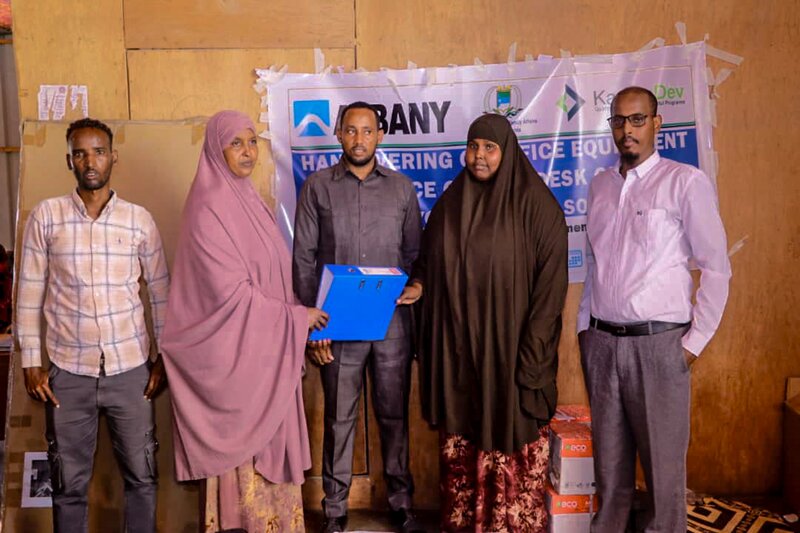
Through this initiative, she played a crucial role in equipping 150 local women and girls with essential life skills to enable them to become self-sufficient and independent through income-earning trades such as hairdressing and cooking.
“The three-phase programme changed the lives of these young women and girls, who are even today utilizing the skills they got during that six-month training course,” she says.
In 2019, Ms. Aden moved to a civic education programme, this time run by the Somali Women Studies Centre (SWSC), an NGO established in 2011 to empower Somali women to exercise their agency, leadership, and advocate for their rights, with operations in Mogadishu and Kismayo, and a liaison office in Nairobi, Kenya.
There, she oversaw the training of 50 girls, centred on providing them with hands-on training on leadership and activism skills, as well as on gender and justice issues.
“The girls demonstrated impressive critical thinking and problem-solving skills, and with further leadership and motivational training, they have the potential to become strong future Somali women leaders,” Ms. Aden said.
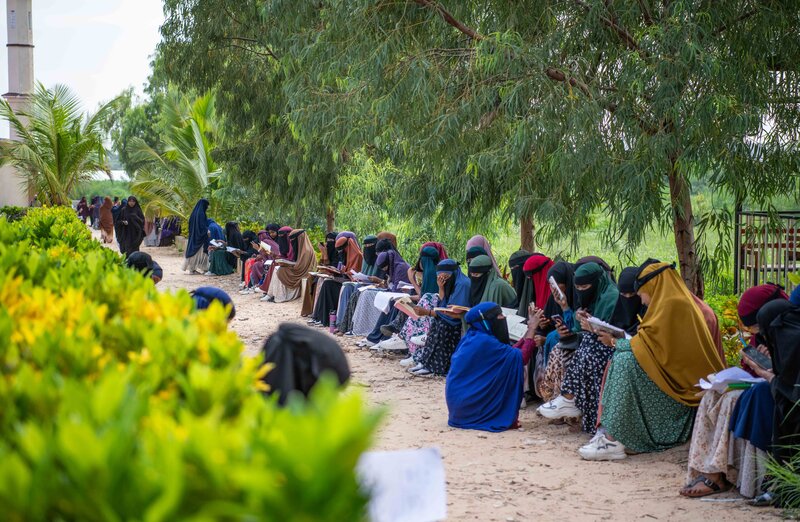
In 2022, Ms. Aden expanded the SWSC’s civic education programme to include girl child protection initiatives and combating gender-based violence. She managed to equip some 60 girl participants with essential life skills and knowledge to protect themselves and advocate for their rights.
“Protecting defenceless, young girls, and teaching them life skills is paramount,” she says.
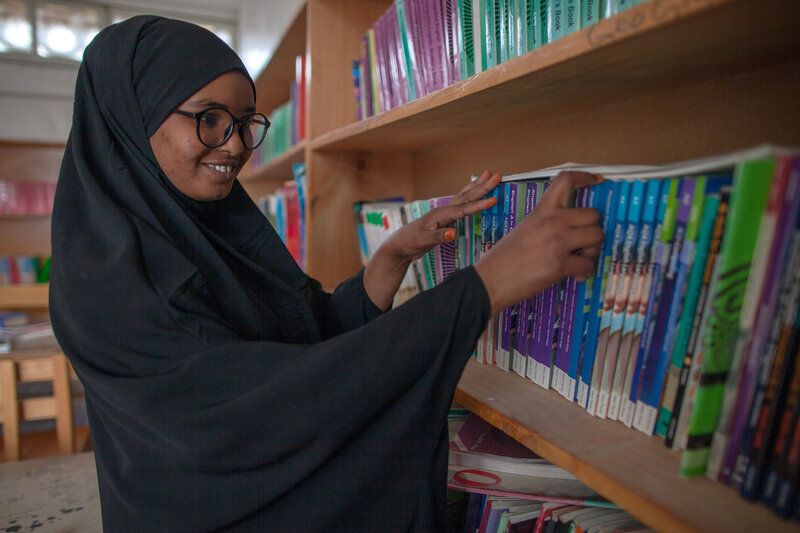
Volunteering on the side
Ms. Aden’s commitment goes beyond her employment – for her, it is a vocation, and she also volunteers in her spare time.
“Our strength is volunteerism. Every day, I am inspired by the collective power of people joining together to make change. Volunteerism is the lifeblood that maintains our advocacy activities in an area with limited resources,” she says.
In addition to her current work with JUNSA, Ms. Aden also runs a volunteer body called the Somali Women Development Organisation (SWDO). Along with nine other dedicated members, the SWDO has intervened in local crises, such as the recent floods in the Lower Jubba region of Jubaland.
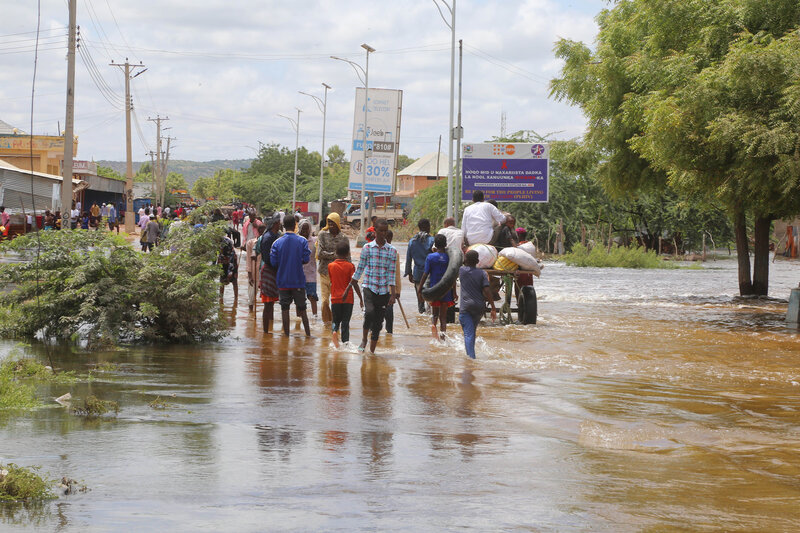
"During the recent heavy rains, I met a lady in the El-Jale IDP camp on the outskirts of Kismayo; she and her three children were marooned in their makeshift accommodation by the flooding,” Ms. Aden recalls. “We managed to save her to safe grounds, and seeing her excitement and gratitude reminded me of why I do what I do!”
The SWDO also speaks up on local issues involving human rights violations and gender-based violence, as well as efforts to end female genital mutilation.
“Since it is unjust for young girls to suffer in such a way, we are here to report these situations, inform the authorities, and help them arrest the offender,” she notes. “Many of these cases go unreported.”
UN and volunteering
The United Nations is an advocate for the benefits of volunteering for local communities. When properly supported, it can help facilitate access to services in health, education and many other areas to some of the poorest, most marginalised or most vulnerable communities, ensuring that no-one is left behind.
“Volunteerism makes a distinct contribution to development and social related matters – by being embedded within communities, volunteers build strong, reciprocal personal and working relationships,” says the Head of Office for the UN’s operations in Jubaland, Arnaud Laloum.
“Volunteers and the people they work alongside have a mutual understanding of each other's experience, skills and networks and can generate solutions that are locally-owned and sustained, and it is through this collaborative effort that Ms. Aden has been so involved and committed for so long to helping women and girls in Kismayo.”
 UN
UN
